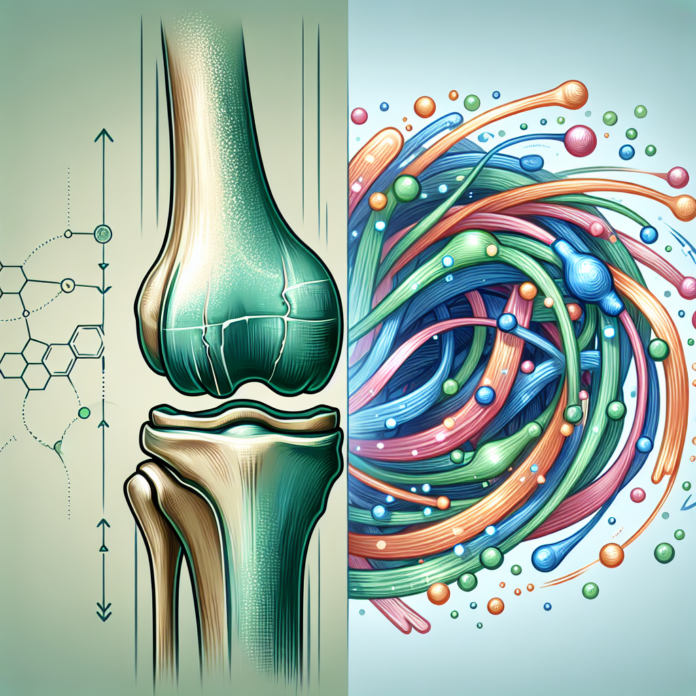In the realm of orthopedic injuries, meniscus tears are a common concern, particularly for those leading an active lifestyle. The meniscus, a crucial C-shaped cartilage in our knees, often falls victim to strain and injury. Traditionally thought to be incapable of self-healing due to its limited blood supply, a meniscus tear typically necessitates surgical intervention. However, an intriguing question looms in the medical community: could peptides, specifically BPC 157, offer a non-surgical healing alternative? In this blog, we delve into the insights shared by Dr. David Guyer, a triple board-certified orthopedic surgeon and sports medicine expert, as we explore the potential of BPC 157 as a treatment for meniscus tears, its current standing in the medical field, and the possibilities it holds for the future. Whether you’re dealing with a meniscus injury or are simply curious about cutting-edge treatments, read on for an in-depth look at this fascinating topic.
The Role of the Meniscus and Challenges in Healing
The meniscus plays an indispensable role in maintaining knee health by acting as a shock absorber and stabilizer. Unfortunately, due to its limited blood supply, meniscus tears are generally unable to heal on their own. This often leads to the consideration of surgical repair, especially in younger, active individuals. The question of using peptides as a non-surgical alternative, specifically BPC 157, has recently gained traction, owing to the peptide’s purported regenerative properties.
What is BPC 157?
BPC 157 is a peptide comprised of short chains of amino acids, naturally originating from the gastric juices in our body. As we age, the natural production of BPC 157 diminishes, leading some to explore synthetic forms produced by laboratories. These synthetic versions are available from various compounding pharmacies and have been used by those who specialize in peptide therapy. Advocates suggest that these peptides might promote healing and offer relief from pain, but skepticism persists around their ability to influence meniscus healing, especially without direct evidence.
Dr. Guyer’s Perspective on Peptide Therapy
Dr. David Guyer emphasizes that, despite the potential therapeutic benefits of BPC 157, its ability to facilitate meniscus healing remains largely unproven. For peptides to be effective in addressing specific intraarticular conditions like a meniscus tear, they would need to reach the knee joint directly. Current methods of administration, such as oral capsules or subcutaneous injections, might not allow the peptide to access the knee joint where it is needed. Even if directly injected by a healthcare professional into the knee, there is limited evidence to suggest that BPC 157 has significant regenerative capabilities capable of healing a meniscus tear.
The Potential Role of BPC 157 in Pain Management
Despite these reservations, it’s worth noting BPC 157 might have a role in managing pain associated with knee injuries. While this is not synonymous with healing the tear itself, reducing pain can improve the quality of life, enabling individuals to maintain mobility and potentially delay more invasive treatments.
Exploring Other Regenerative Treatments
There is another avenue worth exploring, one that involves other regenerative medicine strategies. Treatments such as exosomes, stem cells, and platelet-rich plasma (PRP) have shown promise in the realm of tissue regeneration and repair. These therapies could offer alternative solutions for those seeking to avoid surgery. Each of these treatments operates on the principle of utilizing the body’s natural healing mechanisms, but more research is needed to validate their effectiveness comprehensively.
- Exosome Therapy: Derived from stem cells, exosomes transfer proteins and genetic material to cells, potentially promoting repair and regeneration.
- Stem Cell Therapy: Involves injecting stem cells into the affected area to promote healing through the development of new cells that replace the damaged ones.
- Platelet-Rich Plasma (PRP): Uses a concentration of platelets from the patient’s blood, rich in growth factors, to expedite the healing process of injured tissues.
Concluding Thoughts
While options like these hold promise, each comes with its own set of challenges, research requirements, and considerations which must be discussed with a healthcare provider.
Those coping with meniscus tears and other orthopedic injuries should weigh their options carefully, especially when considering experimental treatments. It is essential to consult healthcare professionals who specialize in regenerative medicine to understand the potential risks and limitations associated with various therapies.
Dr. Guyer’s insights remind us that while the allure of novel treatments like BPC 157 is strong, there remains a critical need for scientifically robust studies to back therapeutic claims, particularly regarding meniscus healing. Peptides and regenerative medicine might represent the future of non-invasive treatment options, but they require additional research to ensure safety and efficacy.
For individuals seeking alternatives to surgery for orthopedic injuries, exploring options with a trusted orthopedic surgeon or sports medicine specialist is vital. Open discussions about the latest treatments, realistic outcomes, and personal health considerations can guide informed decisions in pursuing potential therapies.
While the potential of peptides, such as BPC 157, remains a topic of interest, it underscores a broader trend within medicine where innovative, less invasive approaches continue to be explored. As research progresses, it is crucial for both the medical community and patients to remain informed, discerning, and open to new possibilities that prioritize safety, efficacy, and the best possible outcomes for those impacted by musculoskeletal injuries.
Can peptides like BPC 157 heal meniscus tears without surgery? Explore Dr. David Guyer’s insights on this experimental approach and other regenerative treatments.
